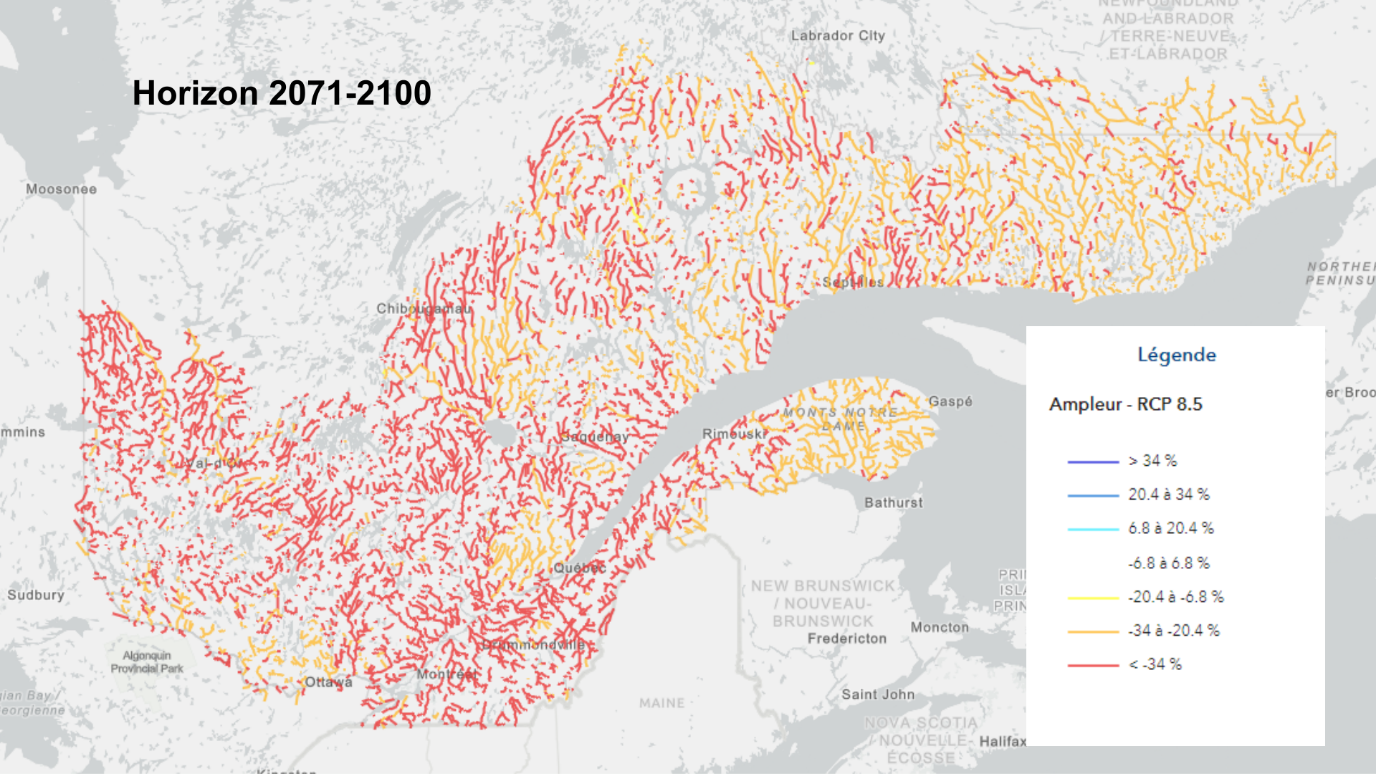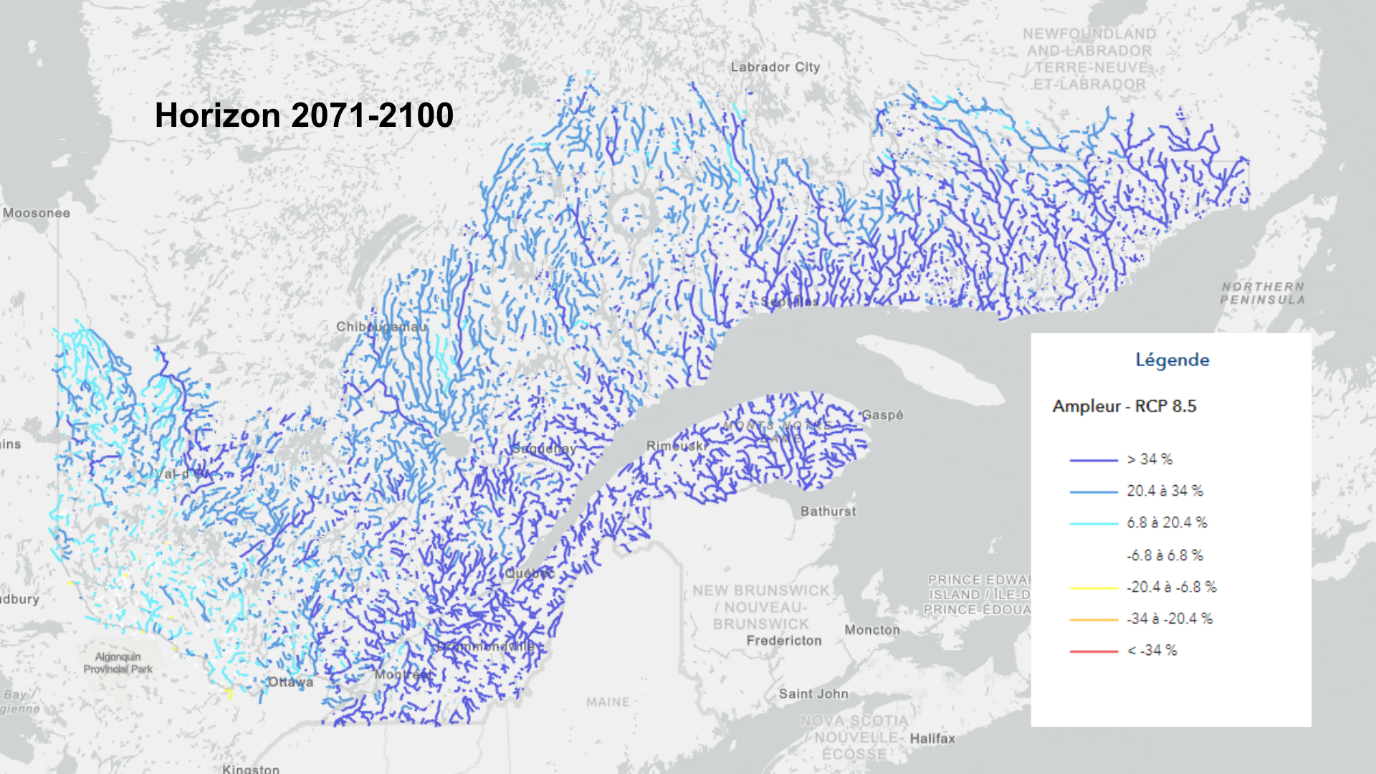Low water levels and hydrological droughts
In the medium to long term, climate change will have a considerable impact on hydrological droughts and low water levels throughout southern Quebec.
Rising temperatures will increase evapotranspiration from watercourses and soils, leading to an rise in the number and intensity of hydrological droughts and low water periods. It’s important to note that this will not be a hard-and-fast rule. Quebec has significant climatic variability due to its geographical position. Despite the expected changes, every year will be different, and dry years could be interspersed with less dry years.
Several climatic indicators relating to low water levels and hydrological droughts are available on:
Low water levels in summer and autumn
A probable decrease in water levels is expected in the summer and fall across southern Quebec. Depending on the different GHG emission scenarios, this reduction could reach between 15% and 25% by mid-century, and 43% by 2080. Low water levels during these seasons are likely to be particularly severe in southern and western Quebec due to rising temperatures and evaporation.

Figure 3: Change in minimum 7-day mean flow (%) in summer and fall for a 2-year low water event in the 2071-2100 reference period (drawn from: MELCCFP, 2023).
Water levels in the winter
A very probable increase in winter water levels is projected for all of southern Quebec, largely due to milder winters and increased precipitation in the form of rain. Winter low water events will therefore tend to be less severe. Under a high GHG emission scenario, this increase could reach between +20% and +50% by 2050, and up to +65% by 2080.

Figure 4: Change in minimum 7-day mean flow (%) in winter and spring for a 2-year low water event in the 2071-2100 reference period (drawn from: MELCCFP, 2023).
Thanks to this project, it may be possible to obtain more reliable projections of future low water periods in southern Quebec. The aim of this research project is to better identify the meteorological conditions leading to low water episodes in the context of climate change, and to better understand hydrological drought episodes in the province.